


PureVPN vs. CyberGhost – which is the best VPN in 2022? That’s what this roundup is all about. If you are in a dilemma on which subscription to buy, you are at the right place.
There’s no doubt PureVPN and CyberGhost are two of the best VPN brands today. The two share a lot in common, but of course, there are clear-cut differences that put one model at the helm. So, what is the difference between PureVPN and CyberGhost?
The main differences come in the pricing, number of maximum simultaneous connections, number of supported protocols, server network, and speed. PureVPN is cheaper, supports up to 10 devices at a go, works with seven protocols, and has a smaller server network, but is much faster. On the other hand, CyberGhost is a bit more expensive, supports up to 7 devices at a go, works with three protocols, and has a wider server network but is slower.


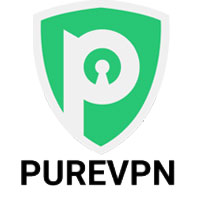
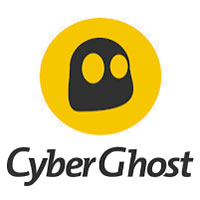
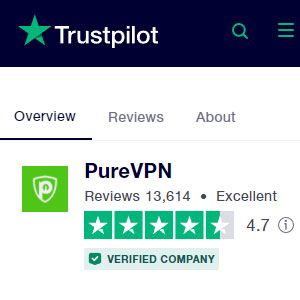
PureVPN is a reputable VPN brand that has been in business since 2007 when it launched.
Owned and operated by GZ Systems Limited, it is one of the bootstrapped VPN companies on the market. We checked online reviews, consumer review sites, and other similar sites to ascertain its credibility, and we are happy it is rated highly by both industry experts and its users.
The company has received several top awards, including KPMG Certification, twice in a row and was named the Rising Star of 2019. On TrustPilot, PureVPN commands an impressive 4.7/5 rating after 14,000+ reviews.
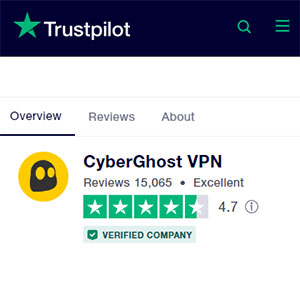
CyberGhost is an equally trusted VPN brand, started in 2011 before it was acquired by Kape Technologies Ltd, formerly Crossrider Limited. This is the same company that owns Private Internet Access (PIA), ExpressVPN, and Zenmate VPN.
We also did thorough checks on CyberGhost’s reputation, and we are happy to report that just like PureVPN, this is a trusted brand with several awards and recognitions under its belt.
It has been featured on top cybersecurity sites and boasts an excellent rating on TrustPilot. At the time of writing, CyberGhost has a 4.7/5 rating after 15,000+ reviews.
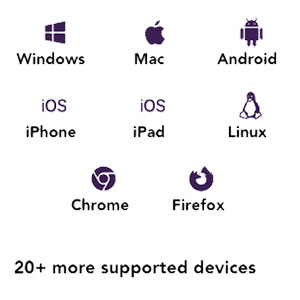
PureVPN is a versatile VPN that offers all-round protection. You can rely on it to protect all PCs regardless of their operating system. So, you are good to go whether you have a Windows PC, macOS, or Linux.
There are also browser extensions for these devices. PureVPN is also compatible with mobile devices, including iOS and Android, alongside several entertainment devices, for example, Android TVs, routers, BoxeeBox, Roku TV, gaming consoles, and so on.
The other aspect is the maximum number of simultaneous connections. With PureVPN, you can connect up to 10 devices at a go.
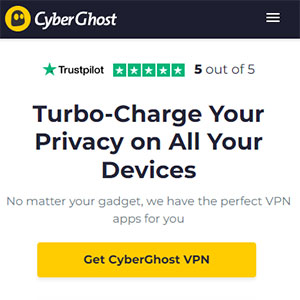
CyberGhost is also an all-round VPN that can connect all the devices you can think of. It is compatible with all PCs, from Windows to Linux and Mac. There are also browser extensions for the above devices.
Besides PCs, CyberGhost is a mobile VPN, so you can always protect your Android or iOS device. Besides mobile devices and PCs, this VPN is compatible with routers and entertainment devices such as Fire Sticks, Apple TVs, Smart TVs, gaming consoles, and so on.
Regarding the maximum number of simultaneous connections, CyberGhost supports up to 7 devices at a go.
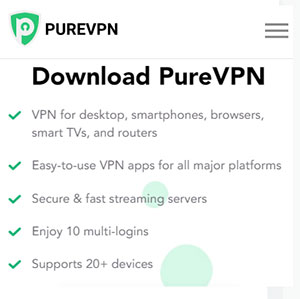
To get started with PureVPN, the first thing to do is click the ‘Get PureVPN’ button. The page will redirect to the plans page, where you need to choose a plan, select the preferred payment method and complete the transaction.
The next step is to download the PureVPN client for your device, log in, select a preferred server and that’s it. For the record, the procedure for getting started might differ depending on the device, but the main idea is getting a plan.
The best part is that PureVPN has plenty of tutorials to help users get started and even configure the VPN to work with other devices such as routers, TVs, and gaming consoles. The app’s layout is pretty straightforward, and so is the navigation.

Getting started with CyberGhost is also pretty easy. The first step is to create an account and confirm your email address. Once you have an account, purchase a plan and download the CyberGhost client software that fits your device.
Then, log in using the details of the account you have a plan with, select a preferred server based on your needs, and you are good to go.
Unfortunately, just like PureVPN, some devices might require manual configuration, which can be an uphill battle for non-techies. But there are many resources to guide you in this. The layout is also intuitive, so finding your way around is pretty straightforward.
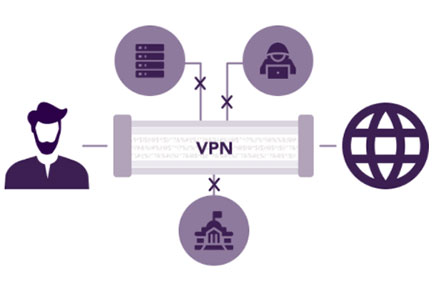
PureVPN is an advanced VPN provider that deploys the latest encryption technology. This is the Advanced Encryption Standard (AES) 256-bit key. It is the best encryption technology today as AES 256-bit key uses cipher algorithms guaranteeing uptight security and privacy. With AES 256-bit encryption, not even the world’s most powerful computers can manage a successful brute force attack. Regarding data authentication and the handshake options, PureVPN uses SHA256 and RSA-2048 with RSA-4096 as the fallback.
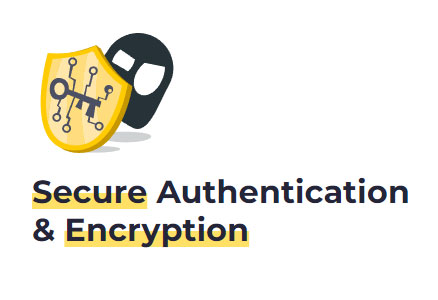
CyberGhost is also an advanced VPN that ditched the old encryption technologies for the latest Advanced Encryption Standard (AES) 256-bit key encryption. It’s literally impossible to perform a brute force attack on systems secured using 256-bit encryption. Unlike PureVPN, CyberGhost uses TLS v1.2 as the handshake option but maintains SHA-256 for data authentication.
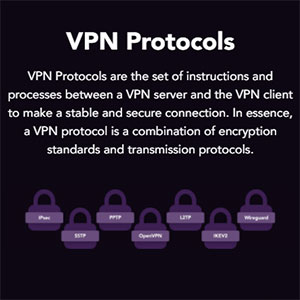
PureVPN is among the most versatile VPNs on the market, courtesy of its wide range of protocols. The VPN supports PPTP, L2TP, SSTP, IKEv2, WireGuard, IPSec, and the most popular tunneling method, OpenVPN.

CyberGhost, on the other hand, is a versatile VPN but not on the level of PureVPN as it supports only three tunneling methods, IKEv2, OpenVPN, and WireGuard. These are basic protocols but support most of the basic VPN functions.
One of the most critical security extras that PureVPN tags along with is IPv6, DNS, and WebRTC leak protection. This way, you can always be assured that your online security and privacy are intact. There’s also an internet kill switch that cuts down the connection immediately when the VPN connection fails.
There’s also Split Tunneling, so you can set the traffic that should be routed via the VPN and traffic that can connect directly to the internet. PureVPN also offers Complete Anonymity, a key aspect for users who want to avoid bandwidth throttling by ISPs.
CyberGhost is an equally worthy VPN when it comes to security extras. One of the basic features included is DNS and IP leak protection, so you can always browse stress-free. An internet kill switch further backs up protection, so your connection to the internet is dropped immediately the VPN connection drops.
CyberGhost also comes with Split Tunneling, so you decide what traffic to route via the VPN servers and which traffic connects directly to the internet resource. Also worth mentioning is the free SOCKS5 proxy that adds an extra layer of security.
PureVPN is based in the British Virgin Islands (BVI), which is not part of any global surveillance organizations. That means the government has no obligation to share crucial data with any country. Besides, it respects online privacy. For the record, PureVPN used to be based in Hong Kong but recently shifted to the BVI.
CyberGhost is also a great choice when it comes to jurisdiction. It is based in Romania, a country that is not part of any surveillance groups. The country actually termed the EU mandatory data retention laws as unconstitutional. That said, you don’t have to worry about your online privacy when using CyberGhost.
PureVPN might be based in a privacy-friendly country, but its strict no-logging policy is questionable. The company once shared crucial information of one of the VPN’s users with the FBI. But that was some years back. Today, the VPN guarantees users that the 100% no-logging policy is as strict as ever. The company states clearly that it does not keep logs of your browsing activity, connection, assigned IPs, original IPs, session timestamps, and browsing history.
CyberGhost is one of the best no-log VPNs. It has a trustworthy no-logging policy, so you can be sure that there won’t be any data to share even if the authorities come around. The company says it doesn’t collect identifiable information, including your IP address, DNS queries, connection and disconnection timestamps, bandwidth usage, accessed content, session duration, VPN server connections, or browsing history.
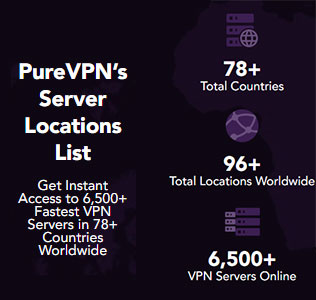
One of the strengths of PureVPN is the vast server network. The VPN boasts over 6,500 servers in over 96 locations spread in over 78 countries in Asia, Europe, North America, Central America, South America, Africa, and Oceania.
While most of these servers are physical servers, the VPN has some virtual servers in the United States. These servers are highly specialized. For example, there are high-speed servers, dedicated streaming servers, P2P-friendly servers, VoIP servers, and so on.
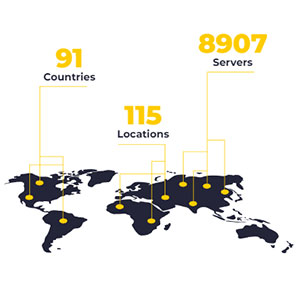
CyberGhost, too, has a robust server network. The VPN boasts over 8200 servers in 114 locations spread in over 90 countries in all the regions, including Europe, the Americas, Africa, the Middle East, Asia, and the Pacific region.
CyberGhost also has highly specialized servers optimized for different applications. For example, there are specific servers for P2P sharing or unblocking Netflix. Worth mentioning is the fact that these are RAM-only servers, so whenever a server is unplugged, all the data is erased. This further exudes confidence that this is a no log VPN.

To start, PureVPN has streaming-friendly servers. We tested the VPN and are glad it had a 90% success rate. We unblocked several Netflix platforms and other several streaming sites with geo-restricted content, for example, Kodi, Hulu, BBC iPlayer, Popcorn Time, etc.
When it comes to torrenting and file sharing, PureVPN is also one of the best. We tried out the P2P-friendly servers, and the results were excellent. The speeds are fast, and at no time did we experience bandwidth throttling.
Lastly, PureVPN can prevent you from DDoS attacks, which are prevalent in gaming. The VPN can also allow you to access content and discounts unavailable in your region.
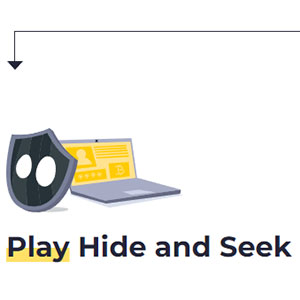
CyberGhost, too, is entertainment-ready. It unblocked several Netflix platforms and streamed even 4K content with a high success rate. Besides Netflix, this VPN can unblock Hulu, Kodi, BBC iPlayer, and Crunchyroll, among other streaming sites with geo-restricted content.
When it comes to P2P sharing and torrenting, CyberGhost works like magic. We launched several torrenting and P2P sharing sessions and never experienced bandwidth throttling, so this VPN is safe for torrenting.
One of its salient features is the SOCKS5 proxy which adds an extra layer of anonymity. Lastly, regarding gaming, this VPN prevents DDoS attacks and can help gamers access gaming content not available in their regions, as well as discounts.

Besides the excellent usability, PureVPN has invested in a robust customer support infrastructure. You can get help via live chat, available 24/7.
We tried this channel, and we are glad we promptly got help on the basic non-technical issues. But on technical issues, there was a slight delay. But ultimately, the team is great at solving problems.
Besides live chat, you can contact PureVPN via an email ticketing system though feedback is not prompt. There is also a knowledgebase and an FAQ section with helpful information and answers to the most commonly asked questions.
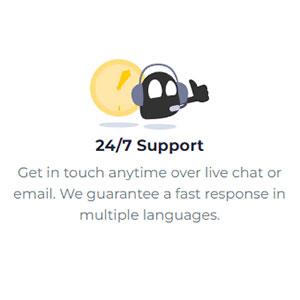
CyberGhost also has a multichannel customer support infrastructure so users can get help whenever needed. The most preferred channel by our team is the 24/7 live chat that offers immediate feedback on basic issues.
However, the response to technical issues took a little bit longer. Besides, there is an email address provided, but feedback takes longer.
Lastly, CyberGhost has a knowledgebase and a detailed FAQ section with answers to the most common questions asked by users.

PureVPN is one of the most flexible and affordable VPNs around. There are three plans: 1 Month plan at $10.95 a month, a 12 months plan at $3.24 a month, and a two-year plan at $1.99 a month. A 31-day money-back guarantee covers all plans. Unfortunately, dedicated IP, DDoS Protection, and Port Forwarding are billed separately.
Besides, there is no PureVPN free plan or free trial. Instead, there’s a PureVPN 7-day free trial for $0.99. Regarding the available payment methods, you can purchase a subscription using PayPal, Visa, Mastercard, AMEX, and UnionPay.
Interestingly, PureVPN can be purchased using cryptos such as Bitcoin, Tether, and Ethereum, which add an extra layer of anonymity. But note that crypto payments are non-refundable.

CyberGhost might not be the cheapest VPN around, but there are flexible plans. You can choose from four plans: a 1-month plan ($12.99 a month), 1-year plan ($4.29 a month), a 2-year plan ($3.25 a month) and a 3-year plan ($2.29 a month).
The 1-month plan has a 14-day money-back guarantee, while the rest of the plans have a 45-day money-back guarantee. While there is no free version, one great thing about CyberGhost is the free trial with no credit card required.
As for the payment methods, CyberGhost has partnered with Amex, PayPal, Visa, and MasterCard. Bitcoin payments are also accepted via BitPay.


That’s the end of this PureVPN vs. CyberGhost comparison review. So, who is the winner? Well, it all depends on your needs. If you are looking for a cheap VPN that offers excellent value for money, you might want to go with PureVPN. It’s much cheaper and supports more simultaneous connections. It also uses the latest military-grade encryption and supports more protocols.
Last, it is faster compared to CyberGhost. But still, CyberGhost is a worthy choice if you want the best VPN for P2P sharing. It has a wider server network, offers uptight security and privacy, and has a free trial with no credit card required.